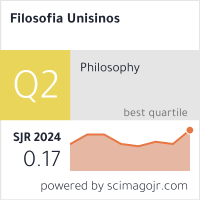Logic, language and reality
Resumen
While John Stuart Mill assimilated the logical principles into empirical laws, the logical empiricists held that logical truths were analytical, deprived of empirical content and true by convention. In “Two Dogmas of Empiricism” Quine advocated a pragmatic reading of logical truths and argued that the only difference between them and the hypotheses of scientific theories was that scientists are more reluctant to change the former in case of a conflict with experience. But in later writings he admitted the possibility that logical truths reflect structural traits of the world and become self-evident. In this paper it is argued that both the logical empiricists’ and the Quine’s earlier views about logical truths are misguided. Consequently, it is claimed that logical truths have an ontological scope and are necessary in order to preserve the intelligibility of our discourse.
Key words: empiricism, analytic sentences, logical truth, ontology.Descargas
Métricas
Descargas
Publicado
Cómo citar
Número
Sección
Licencia
Concedo a revista Filosofia Unisinos – Unisinos Journal of Philosophy o direito de primeira publicação da versão revisada do meu artigo, licenciado sob a Licença Creative Commons Attribution 4.0 (que permite o compartilhamento do trabalho com reconhecimento da autoria e publicação inicial nesta revista).
Afirmo ainda que meu artigo não está sendo submetido a outra publicação e não foi publicado na íntegra em outro periódico e assumo total responsabilidade por sua originalidade, podendo incidir sobre mim eventuais encargos decorrentes de reivindicação, por parte de terceiros, em relação à autoria do mesmo.










